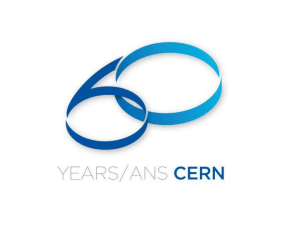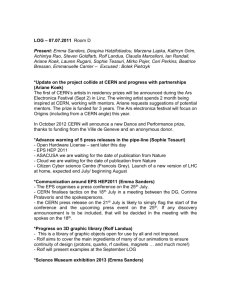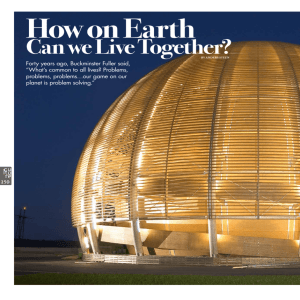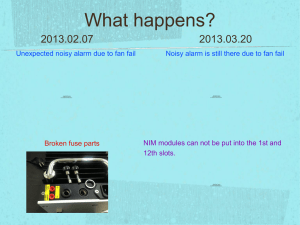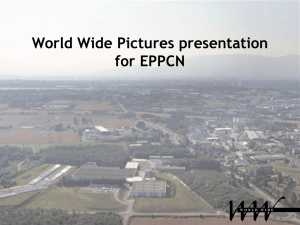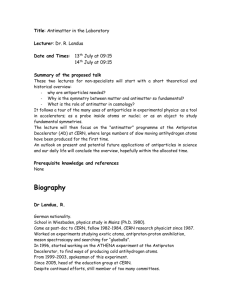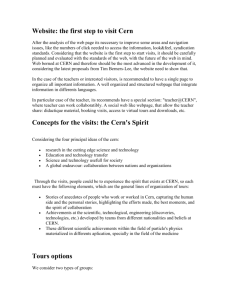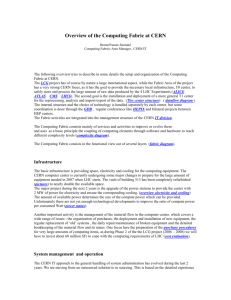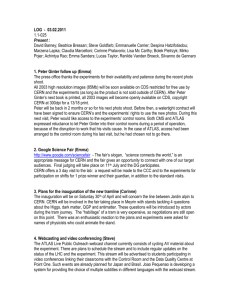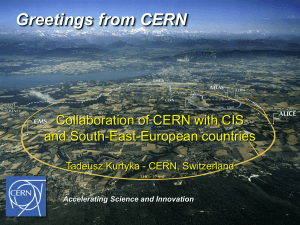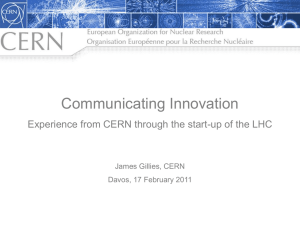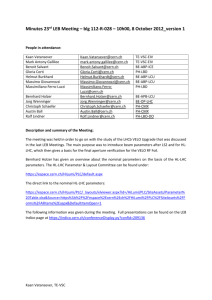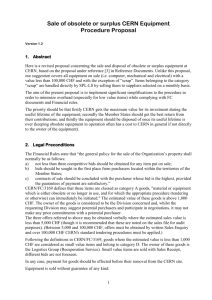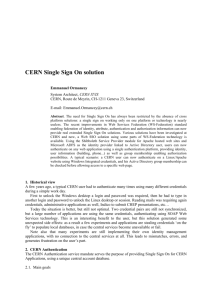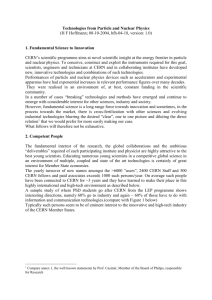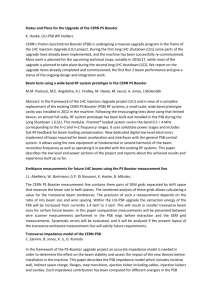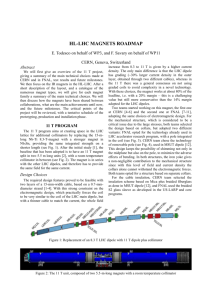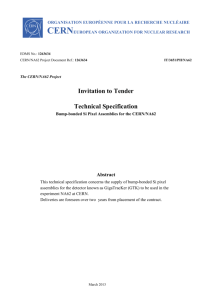CERN BL4S 2015 News Report Full
advertisement
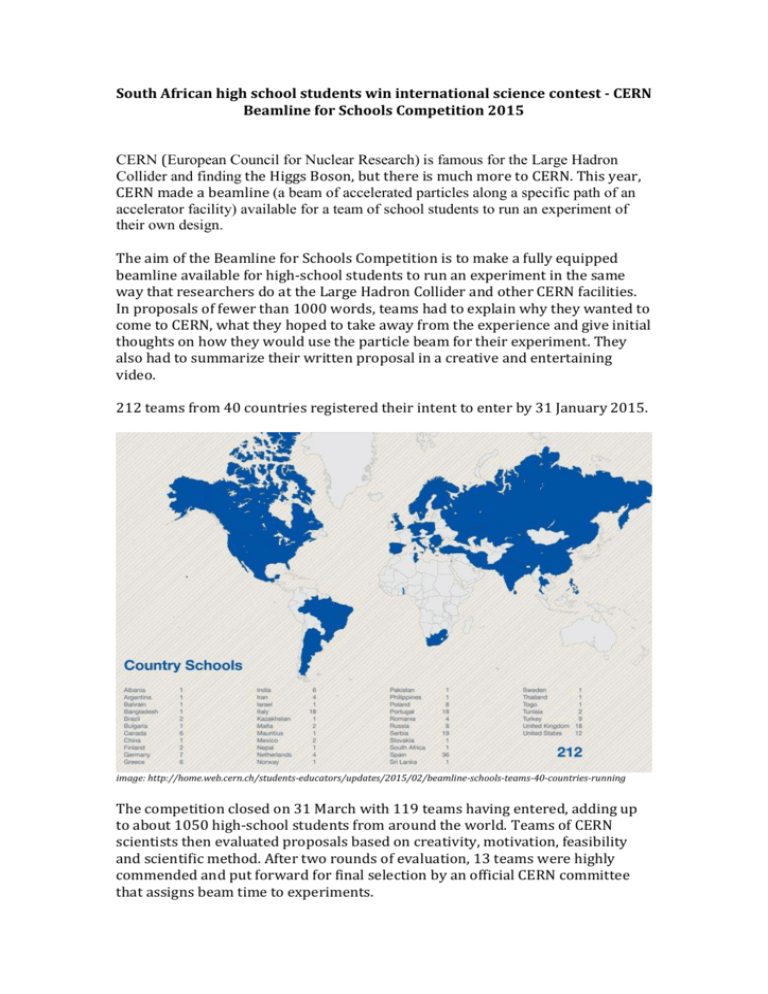
South African high school students win international science contest - CERN Beamline for Schools Competition 2015 CERN (European Council for Nuclear Research) is famous for the Large Hadron Collider and finding the Higgs Boson, but there is much more to CERN. This year, CERN made a beamline (a beam of accelerated particles along a specific path of an accelerator facility) available for a team of school students to run an experiment of their own design. The aim of the Beamline for Schools Competition is to make a fully equipped beamline available for high-school students to run an experiment in the same way that researchers do at the Large Hadron Collider and other CERN facilities. In proposals of fewer than 1000 words, teams had to explain why they wanted to come to CERN, what they hoped to take away from the experience and give initial thoughts on how they would use the particle beam for their experiment. They also had to summarize their written proposal in a creative and entertaining video. 212 teams from 40 countries registered their intent to enter by 31 January 2015. image: http://home.web.cern.ch/students-educators/updates/2015/02/beamline-schools-teams-40-countries-running The competition closed on 31 March with 119 teams having entered, adding up to about 1050 high-school students from around the world. Teams of CERN scientists then evaluated proposals based on creativity, motivation, feasibility and scientific method. After two rounds of evaluation, 13 teams were highly commended and put forward for final selection by an official CERN committee that assigns beam time to experiments. This year boys in grade 11 from St John’s College and Barnato Park High School collaborated and formed a team called “Accelerating Africa”. The name was chosen as the team wanted to demonstrate that students from different backgrounds, working together, with a passion for Science, could be an example of what Science education in South Africa can achieve. Their project is inspired by 2015 being named the International Year of Light by the United Nations, and involves producing high-energy gamma rays using a crystalline undulator. The proposed experiment will study the properties of a crystal undulator for the production of MeV range gamma radiation. See http://physics.uj.ac.za/wiki/CBL4S/Main/HomePage?action=download&upname=CERN%20proposal%20%20Accelerating%20Africa.pdf The video for the proposal is here https://www.youtube.com/watch?v=_1bRnuciYZU&feature=youtu.be On 15 June 2015 in Geneva, CERN announced the winners of its 2015 Beamline for Schools competition. Two teams of high-school students have been selected to travel to CERN in September to carry out their own experiments using a CERN accelerator beam. The winners are the “Accelerating Africa” team from St John's College and Barnato Park High School in Johannesburg, South Africa and the “Leo4G” team from Liceo Scientifico Leonardo da Vinci School in Florence, Italy. This means that 10 students from South Africa and 10 students from Italy will be sponsored by CERN to travel to Switzerland in September to conduct the experiments that they proposed. This is an incredible achievement for South Africa, St John’s College, Barnato Park High School and the students involved. A few quotes from some of the South African team members capture their thoughts: "Science was the catalyst for this endeavour, co-operation inspired the feasibility, and the two together will lead us along this journey." - Brandon MacKenzie, St John's College "When I first heard the good news I was ecstatic, my hands where shaking and my heart was beating faster than usual. I could not believe that such an amazing opportunity has been blessed to me. I've always wanted to pursue a career in Physics or Engineering and winning this amazing competition has brought me closer to my dreams. I've always wanted to travel abroad as I have never been overseas nor have I been in an airplane. I'm truly thankful for this opportunity given to me and I know that I will take it with my two bare hands and not let go of it. Thank you." - Malaika Elliot Motsoai, Barnato Park High School "This opportunity that we have been presented with, will not only allow us to enjoy a once in a lifetime experience, but has also given us the chance to show the world and our fellow South African students that with hard work and determination almost anything is possible." - Fayadh Haffejee, St John's College The joint St John’s College and Barnato Park High team is led by the St John’s College Head of Department, Science: Dr Colleen Henning. Prof Simon Connell from the University of Johannesburg has provided support in the proposal development and the student training. The South African Institute of Physics is very proud of the South African Schools team. Dr Sahal Yacoob, the International Particle Physics Outreach Group (IPPOG) representative for SA, will work with Prof Connell and Dr Henning and the SAIP to ensure the maximum benefit to SA from this project. Dr Henning may be contacted at henning@stjohnscollege.co.za for further information. Colleen Henning HOD Science St John’s College Note: The 13 teams that were given the status of highly commended are, in alphabetical order by team name: Accelerating Africa from South Africa, Atid from Israel, curioCERNty from the United States of America, Flash Team from Portugal, Leo4G from Italy, Muonsters from Spain, Photon Hunters from Spain, Prerna from United States of America, R4CERN (R_ookies of R_ats R_ock the R_ays at CERN) from Germany, Salesianos-Úbeda from Spain, Team Nutella from Canada, Team Tachyon from Canada and The Princesses of Particles from Germany.
